The impetus for this article arose from stumbling across one of
the most beautiful tango videos I have ever come across - containing two
men (brothers no less). The fact that it is tango milonga is already a
big plus, as that genre is my favorite... but I digress. Before this
topic is discussed, I attach the said video for your viewing pleasure.
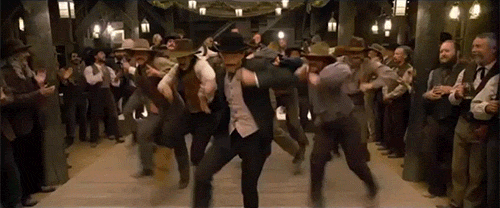
Enrique and Guillermo De Fazio
dancing to the Reliquia Portenas
dancing to the Reliquia Portenas
World renowned tango dancers "Los Hermanos Macana" Though only in their twenties, the Argentine brothers Enrique and Guillermo De Fazio have become a famous dance couple.
They are known worldwide for their breathtaking and witty tango interpretations. With their two-man shows they thrill their audiences at venues from the Americas, Europe and Australia.
They are known worldwide for their breathtaking and witty tango interpretations. With their two-man shows they thrill their audiences at venues from the Americas, Europe and Australia.
The Myth
The myth of how men started dancing tango with men has
two variations; both around the theme of bordellos - aka 'prostibulos' -
most likely because this theme sounds so damn good.
The first variation relies on the boredom factor, a la whilst men were waiting to be 'serviced' they had nothing else to do other than to refine their dancing skills.
The second variation (only slightly less fanciful) has bordellos providing the waiting men with tango bands for their casual dancing amusement, while they waited.
The first variation relies on the boredom factor, a la whilst men were waiting to be 'serviced' they had nothing else to do other than to refine their dancing skills.
The second variation (only slightly less fanciful) has bordellos providing the waiting men with tango bands for their casual dancing amusement, while they waited.
The truth is that whilst both variations undoubtedly did happen,
it does not account for the large numbers of men who danced together,
nor for the wide-scale acceptance of same-sex dancing, which is quite
rare in other dancing cultures.
Nicholas Bros - Dance Day Bunny Jumping
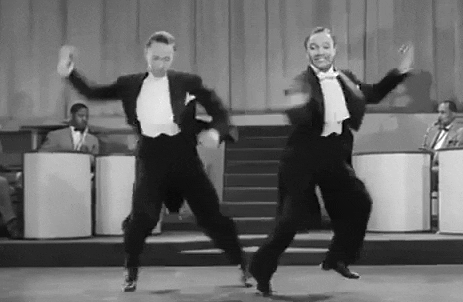

-
🕺🕺 The Origin of Him-and-Him🕺🕺
🕺🕺 The Origin of Him-and-Him🕺🕺
So indeed, what is the principle origin of men dancing tango with each other?
In fact there are three completely separate reasons - which interestingly worked together.
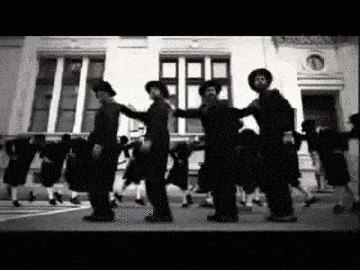
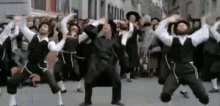


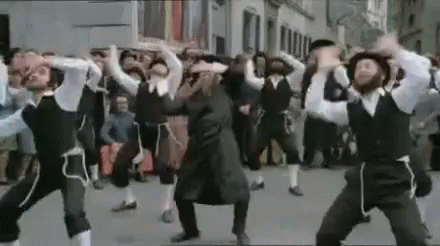
Reason 1: No Access To Women
The first reason derives from where tango was initially
danced. It must be remembered that tango, foremost, was the dance of the
poor, the underprivileged - the 'lower class'. This group of people had
less access to venues where tango was danced, and furthermore had less
cultural 'finesses' or boundaries. As a result of these influences there
evolved a culture in which it was acceptable for tango to be danced in
the streets. Hence even before tango was danced between men, we must
imagine in our minds a culture where it was quite common for couples to dance out in the open. In fact a specific style, Tango Orillero, was even evolved out of outdoor suburban tango dancing.
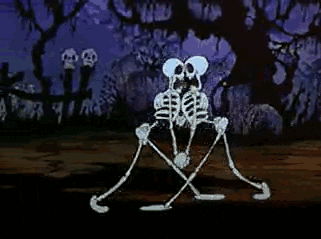
But in the early 1900s, tango was changed forever by the advent
of European immigration. One of the outcomes of this cultural shift was
that it became unacceptable for women to dance on the streets. The
proximity of men and women in public was considered to be a scandal -
even touching slightly, let alone embracing. Many women, especially the
young, were not allowed to go to practicas or milongas, except if
accompanied with their parents. However men being men, they still wanted
do what they men wanted to do - dance! A certain percentage of the men
went to venues where it was acceptable to dance, but many others - due
to limited means or access - had no option other than to continue
dancing in the streets. At that point, if a man wanted to dance in the
street, there was not much choice; his only option was to dance with
other men, which is precisely what occurred.
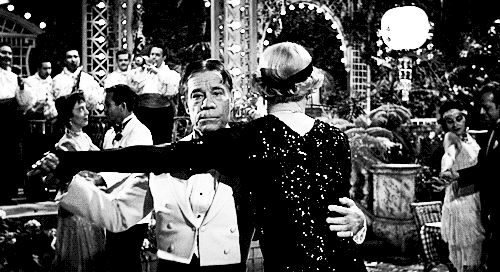
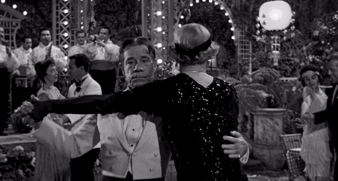 Reason 2: Courting
Reason 2: Courting


The second reason for same-sex dancing is the fact that dancing
was seen as a means to a woman's heart. This was further exacerbated by
the fact that men outnumbered women in Buenos Aires in the early 1900s,
so competition was fierce, and every edge counted. From this
perspective, the fact that men could dance with men away from women was
actually an advantage: young men could tune their skills for a
long time by going to men-only prácticas, until they were ready and
confident to enter the floor of couples - where inevitably only very
good dancers were accepted. This further reinforced the need for
male-only dancing. It should be noted that the process for a man to
learn tango would first start with the man going to a practica, and
watching. Eventually one of the older men would teach him how to follow.
Then when he was proficient, he would be promoted to leading another
young man. Normally it would take about a year until a man was promoted
to start leading. Then, when the man was ready - and this took often 3
years! - he would finally be escorted with another more experienced man
to a milonga for an arranged dance with a woman.
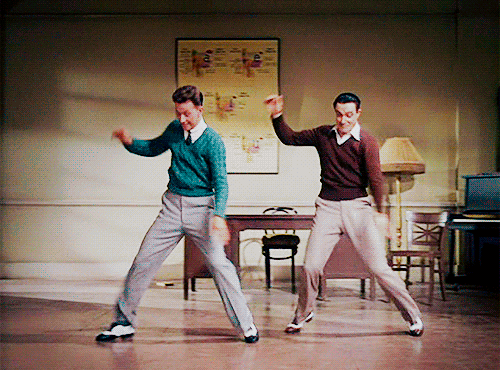
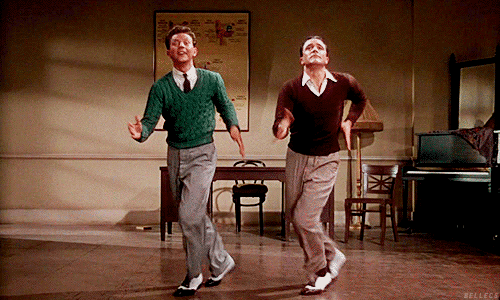
Reason 3: Suppression of Tango
The third reason for men dancing tango with men is that tango
was considered immoral by the upper class and the authorities. So much
so that there was a formal initiative to close all cafes and ban tango
music from being played on the streets. For example, in 1916 a law was
passed in Buenos Aires that banned dancing between men in dance
establishments.
An attempt was made to slowly eradicate it from Argentina, and we find an account in 1919 by Joaquin Belda, who in his visit to Buenos Aires for 6 months wrote that most of the cafes were either closed or empty.
An attempt was made to slowly eradicate it from Argentina, and we find an account in 1919 by Joaquin Belda, who in his visit to Buenos Aires for 6 months wrote that most of the cafes were either closed or empty.
This of course resulted in even further reduced access to
couples dancing tango, so to dance tango, men had to to dance with each
other.
Videos
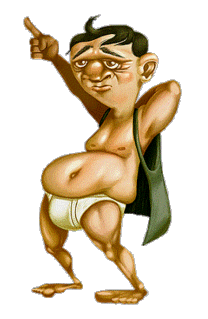



Rudolpho Valentino
and
Vaslav Nijinsky
Rudolph Nureyev as Valentino - biographical drama film very loosely
based on the life of Rudolph Valentino and as Nijinsky Anthony Dowell (English ballet dancer and former Artistic Director of The Royal Ballet) directed by Ken Russel, 1977.
Valentino
is a 1977 American biographical film directed by Ken Russell and
starring Rudolf Nureyev as Rudolph Valentino. The film is very loosely
based on the life of Valentino as recounted in the book Valentino, an
Intimate Exposé of the Sheik, written by Chaw Mank and Brad Steiger. The
film also stars Michelle Phillips as Natacha Rambova, Leslie Caron as
Alla Nazimova, and Carol Kane as Jean Acker.
Music is Liebeszweifel Tango, Adalbert Lutter~Telefunken - 1935
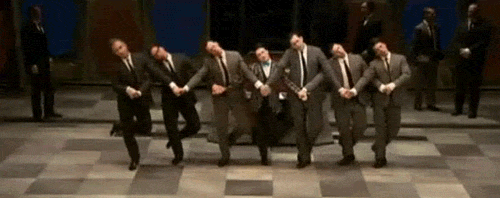

El Internado

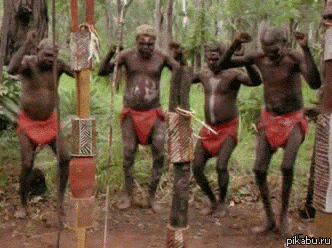
Lalo and Luis
at Tokyo
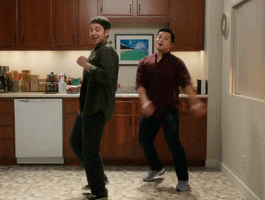
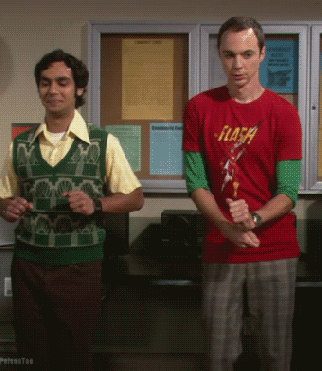
(Tango Brothers)

En tus Brazos
Directed by Fx Goby, Matthieu Landour, Edouard Jouret
MULTI AWARDED including Award of excellence Siggraph, and over 50 selections in film festivals worldwide!
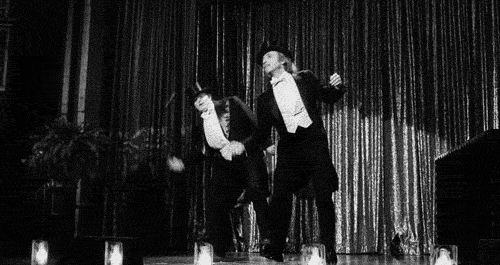
Tango Macho
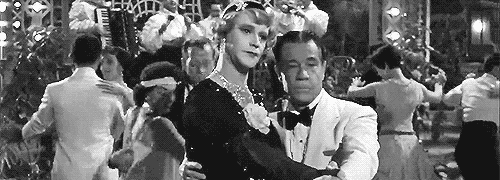
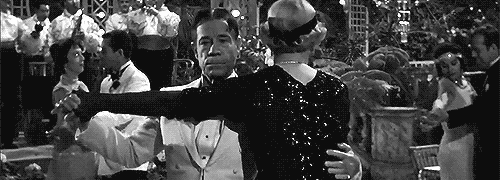
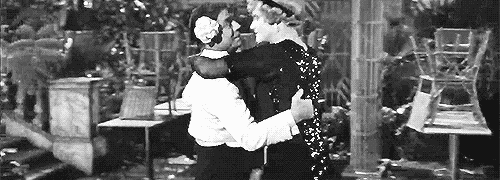
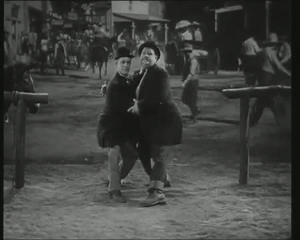

No comments:
Post a Comment